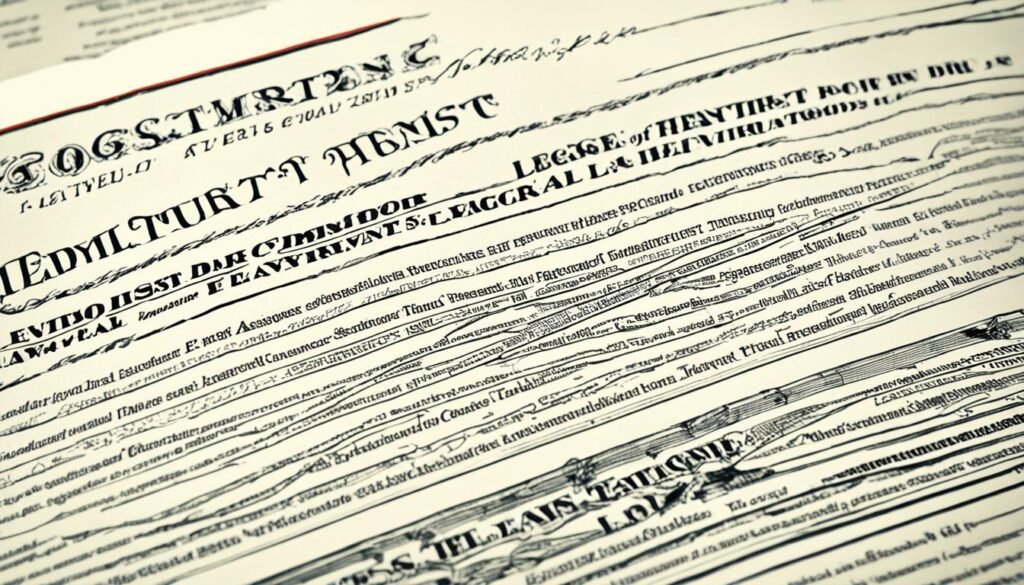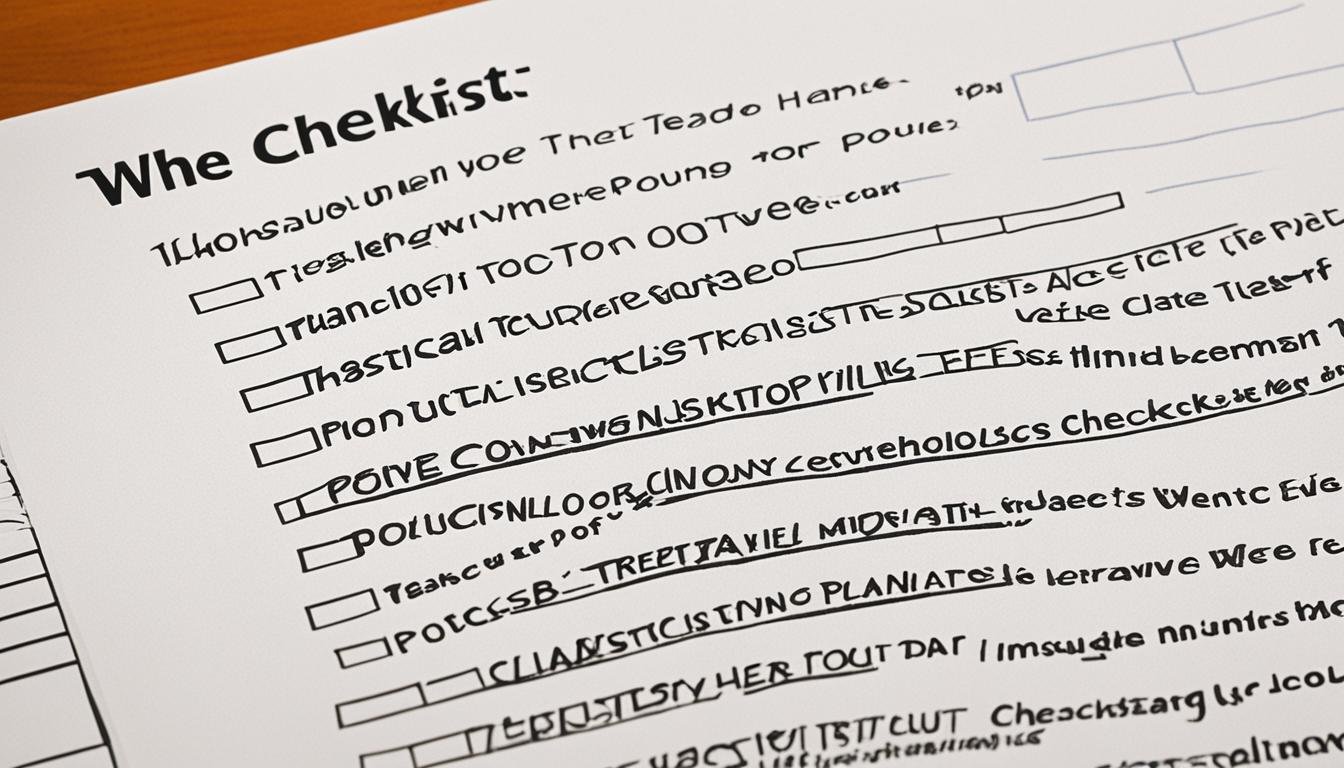Estate planning is a crucial aspect of ensuring the protection and distribution of your assets. It involves a range of legal solutions aimed at safeguarding your wealth and minimizing potential challenges. From creating wills and trusts to designating power of attorney, understanding probate law, navigating inheritance taxes, establishing living wills and healthcare proxies, and following an estate planning checklist, there are many important considerations to keep in mind.
An experienced estate planning attorney can provide valuable guidance throughout this process. They can help you understand the laws and regulations surrounding estate planning and customize a plan that aligns with your specific needs and goals.
Remember, estate planning is not just for the wealthy. It is a necessary step for anyone who wants to ensure their assets are protected and distributed according to their wishes. Whether you have a small or large estate, consulting with an estate planning attorney can help you navigate the legal complexities and make informed decisions.
Key Takeaways:
- Estate planning involves creating wills and trusts, designating power of attorney, understanding probate law, navigating inheritance taxes, establishing living wills and healthcare proxies, and following an estate planning checklist.
- An experienced estate planning attorney can provide valuable guidance throughout the process.
- Estate planning is not just for the wealthy – it is important for everyone to protect their assets and ensure their wishes are carried out.
Understanding Wills and Trusts
When it comes to estate planning, wills and trusts play a critical role in ensuring the smooth distribution of assets and protecting your loved ones’ future. Let’s take a closer look at these essential components and their significance in the estate planning process.
Wills:
A will is a legal document that allows you to dictate how your assets should be distributed after your death. It ensures that your wishes are carried out and provides clarity for your loved ones during a challenging time.
Key features of a will include:
- Naming beneficiaries who will receive your assets
- Appointing a trusted executor to manage your estate
- Designating guardians for minor children
- Specifying funeral arrangements and final wishes
Having a will in place eliminates uncertainties and potential disputes among family members regarding asset distribution.
Trusts:
Unlike wills, trusts offer greater flexibility and privacy in managing your assets. They allow you to transfer ownership of your assets to a trustee who will manage them on behalf of the beneficiaries.
Benefits of establishing trusts include:
- Avoiding probate court, saving time and costs
- Preserving privacy, as trust documents are not made public
- Providing for the long-term care of beneficiaries
- Minimizing estate tax liabilities
Trusts are particularly valuable for individuals with larger estates and complex financial situations.
Estate Tax Planning:
Estate tax planning is an important consideration for those with substantial assets. It involves strategic measures to minimize tax liabilities and protect the wealth you intend to pass on to your heirs.
Working with an experienced estate tax planning attorney can help identify tax-saving opportunities, such as gifting assets, establishing charitable trusts, or creating a family limited partnership. These strategies can help preserve your wealth for future generations and minimize the financial burden on your heirs.
Inheritance Laws and Living Wills:
Understanding inheritance laws is crucial for effective estate planning. Different jurisdictions have specific regulations that govern how assets are distributed in the absence of a valid will or trust. Consulting with a will and trust lawyer can help ensure compliance with these laws and protect your assets.
Additionally, it is essential to establish a living will as part of your estate plan. A living will, also known as an advance healthcare directive, allows you to outline your medical preferences in case you become incapacitated and unable to make decisions. This legal document ensures that your healthcare wishes are respected and carried out by appointed individuals.
Example Quote:
“A will ensures your assets are distributed according to your wishes, while trusts provide additional benefits such as privacy and tax advantages. Understanding inheritance laws and having a living will in place are vital aspects of comprehensive estate planning.”

| Wills | Trusts | Estate Tax Planning | Inheritance Laws | Living Wills |
|---|---|---|---|---|
| Dictate asset distribution | Greater flexibility and privacy | Minimize tax liabilities | Compliance with specific regulations | Outline medical preferences |
| Name guardians for minors | Avoid probate court | Preserve wealth for future generations | Protect your assets | Ensure healthcare wishes are respected |
| Specify funeral arrangements | Manage assets for beneficiaries | Identify tax-saving opportunities | Consult with a will and trust lawyer | Appoint individuals for decision-making |
Power of Attorney and Medical Directives
When it comes to estate planning, there are important legal considerations to ensure that your wishes are upheld even if you become incapacitated. Granting someone power of attorney gives them the authority to make financial and legal decisions on your behalf. This is essential for maintaining control over your affairs and ensuring they are managed according to your preferences.
In addition to power of attorney, another crucial aspect of estate planning is the creation of healthcare proxies or medical directives. These legal documents allow you to appoint someone to make medical decisions on your behalf if you are unable to do so yourself. By designating a trusted individual to advocate for your healthcare needs, you can have peace of mind knowing that your medical preferences will be honored.
Elder law considerations are also important in the estate planning process, especially for older adults. Elder law encompasses legal matters that specifically address the unique needs and challenges faced by seniors. It covers areas such as long-term care planning, Medicaid qualification, and guardianships.
To better understand the importance of power of attorney, healthcare proxies, and elder law in estate planning, let’s take a closer look at each:
Power of Attorney
Power of attorney is a legal document that grants someone the authority to act on your behalf in financial and legal matters. This could include managing your bank accounts, paying bills, and making important decisions about your assets. By appointing a trusted individual as your power of attorney, you can ensure that your financial affairs are handled responsibly and in accordance with your wishes.
Healthcare Proxies and Medical Directives
Healthcare proxies, also known as medical directives, are legal documents that allow you to appoint someone as your representative for healthcare decision-making. In the event that you are unable to make medical decisions, your healthcare proxy will act on your behalf, ensuring that your medical preferences and values are respected. This is particularly important when it comes to end-of-life care, as you can outline your wishes in a living will to guide your proxy in making decisions about life-sustaining treatments.
Elder Law Considerations
Elder law is a specialized area of law that focuses on the needs and concerns of older adults. It covers a wide range of legal issues, including healthcare and long-term care planning, protection against elder abuse, preservation of assets, and estate planning. By consulting with an estate planning attorney who specializes in elder law, you can ensure that your estate plan is tailored to address the unique challenges faced by seniors.
By understanding the importance of power of attorney, healthcare proxies, and elder law in estate planning, you can make informed decisions that protect your interests and ensure your wishes are carried out. Consulting with an experienced estate planning attorney will provide you with the guidance and expertise needed to navigate these critical aspects of estate planning.
| Key Considerations for Power of Attorney and Medical Directives: |
|---|
| Grant power of attorney to a trusted individual to handle financial and legal matters on your behalf |
| Create healthcare proxies or medical directives to appoint someone to make medical decisions on your behalf |
| Consult with an estate planning attorney specializing in elder law to address the unique needs of seniors |

The Role of Probate Law
Probate law plays a crucial role in the estate planning process. It governs the legal procedures that occur after a person’s death, including validating the will, appointing an executor, and distributing assets to beneficiaries. While probate can be a complex and time-consuming process, proper estate planning with the guidance of an experienced estate planning attorney or will and trust lawyer can help streamline the process and minimize potential challenges.
During probate, the court ensures that the will is valid and authentic. This is an important step to prevent any disputes or challenges to the will’s legitimacy. The court also appoints an executor, who is responsible for carrying out the instructions outlined in the will and overseeing the distribution of assets to beneficiaries.
Probate law also plays a role in resolving any debts or liabilities of the deceased person. Creditors may make claims against the estate, and the probate process ensures that these claims are addressed and resolved appropriately.
While probate is a necessary legal process in many cases, it can also have potential drawbacks. Probate proceedings can be lengthy, taking months or even years to complete. Additionally, the costs associated with probate, including court fees and legal expenses, can be significant. The details of the estate may also become a matter of public record during the probate process, which can compromise the privacy of the deceased person and their beneficiaries.
To avoid the potential challenges and drawbacks of probate, proper estate planning is essential. By working with an experienced estate planning attorney or will and trust lawyer, you can explore strategies to minimize the impact of probate on your estate and ensure a smooth transition of assets to your loved ones.

Advantages and Disadvantages of Probate
| Advantages of Probate | Disadvantages of Probate |
|---|---|
|
|
Minimizing Inheritance Taxes
Inheritance taxes are a significant consideration when it comes to estate planning. After the death of an individual, beneficiaries must pay taxes on the assets they receive. However, proper estate tax planning can help minimize tax burdens and protect assets. By implementing strategic measures, individuals can reduce their tax liability and ensure that their wealth is preserved for future generations.
One effective strategy to minimize inheritance taxes is gifting assets during your lifetime. By transferring assets to beneficiaries before your death, you can reduce the taxable value of your estate. This can be done through annual gift tax exclusions or by utilizing certain trusts and gifting techniques. Working with an estate planning attorney can help you navigate the intricacies of gifting assets and ensure compliance with tax laws.
Image:

Establishing trusts is another valuable tool in estate tax planning. Certain types of trusts, such as irrevocable life insurance trusts or charitable trusts, can help reduce the taxable value of your estate and protect assets from excessive tax burdens. By properly structuring trusts, you can ensure that your assets are distributed efficiently and in accordance with your wishes, while minimizing taxes.
Asset protection is also a crucial consideration when it comes to minimizing inheritance taxes. By implementing strategies to safeguard your wealth, such as creating limited liability companies (LLCs) or utilizing offshore trusts, you can protect your assets from potential creditors and ensure they are passed on to your chosen beneficiaries.
Overall, effective estate tax planning and asset protection can help individuals minimize the impact of inheritance taxes and ensure the preservation of wealth for future generations. By working with an experienced estate planning attorney who specializes in tax planning, you can develop a comprehensive strategy tailored to your specific needs and goals.
| Strategies to Minimize Inheritance Taxes | Benefits |
|---|---|
| Gifting assets during your lifetime | Reduces taxable value of estate Ensures assets are passed on efficiently |
| Establishing trusts | Minimizes tax liability Protects assets from excessive taxation Allows for efficient distribution of assets |
| Implementing asset protection strategies | Safeguards wealth from potential creditors Preserves assets for chosen beneficiaries |
Living Wills and Healthcare Proxies
When it comes to estate planning, two crucial documents that ensure your medical wishes are respected are living wills and healthcare proxies. These legal instruments empower you to make important decisions regarding your healthcare in case you become incapacitated and unable to communicate your desires.
A living will is a written account of your preferences for medical treatments, such as life-sustaining measures, in specific circumstances. It serves as a guide for medical professionals and loved ones, ensuring that your wishes are honored and respected during challenging times.
Additionally, a healthcare proxy, also known as a durable power of attorney for healthcare, enables you to designate someone you trust to make medical decisions on your behalf if you become unable to do so yourself. This person, known as your healthcare proxy, will act according to your predetermined wishes and can provide vital support and guidance during difficult times.
To ensure the legal validity and comprehensive coverage of your living will and healthcare proxy, it is essential to consult with an experienced estate planning attorney. They will assist you in drafting these documents in accordance with state laws, ensuring that your intentions and desires are accurately reflected and legally enforceable.
Why are Living Wills and Healthcare Proxies Important?
“Living wills and healthcare proxies offer peace of mind to individuals and their families, knowing that their medical wishes will be followed even if they are unable to communicate.”
By taking the necessary steps to create living wills and healthcare proxies with the guidance of an estate planning attorney, you can have confidence that your healthcare decisions will align with your values and preferences, even in challenging circumstances.
Estate Planning Checklist
An estate planning checklist serves as a comprehensive guide to ensure that you cover all essential aspects of the estate planning process. By following this checklist, you can avoid overlooking important details and ensure that your wishes are carried out effectively. Here are the key items to include in your estate planning checklist:
- Create a will: A will is a legal document that outlines how you want your assets to be distributed after your death. It is essential for designating beneficiaries, guardians for minor children, and specifying funeral arrangements.
- Establish trusts: Trusts offer flexibility and can help protect your assets and minimize taxes. Working with an estate planning attorney, you can determine the type of trust that suits your needs and transfer your assets accordingly.
- Name beneficiaries: Ensure that all your financial accounts, insurance policies, and retirement plans have updated beneficiary designations. This ensures a smooth transfer of assets to your chosen beneficiaries.
- Update insurance policies: Review your life insurance policies and ensure that coverage is adequate to meet your family’s financial needs in case of your untimely demise. Consider consulting an insurance professional to assess your current coverage.
- Designate power of attorney: Assigning power of attorney gives someone the authority to make financial and legal decisions on your behalf if you become incapacitated. Choose a trusted individual to handle these matters according to your wishes.
- Review and update estate plans regularly: Life circumstances change, and it is crucial to review your estate plan periodically to ensure that it reflects your current wishes. Make appropriate updates as needed.
- Consult with an estate planning attorney: An experienced estate planning attorney can provide invaluable guidance throughout the entire estate planning process. They can help you understand complex legal matters, customize your estate plan according to your unique circumstances, and ensure compliance with relevant laws and regulations.
Following this estate planning checklist will help you cover all the necessary bases and make sure your estate is properly managed and distributed according to your wishes. The support and expertise of an estate planning attorney can prove invaluable in this crucial process.
Asset Protection Strategies
Asset protection plays a vital role in your estate planning efforts. It involves implementing strategies to safeguard your valuable assets from potential risks and ensure their preservation for future generations. By working closely with an experienced estate planning attorney, you can explore various asset protection techniques tailored to your unique needs and circumstances.
Here are some key asset protection strategies to consider:
1. Establishing Trusts
Creating trusts can be an effective way to protect your assets from potential threats like lawsuits, creditors, and divorce settlements. By transferring ownership of your assets to a trust, you retain control over them while ensuring they are shielded from unforeseen financial circumstances. Trusts can also provide added privacy and flexibility in managing your assets.
2. Creating Limited Liability Companies (LLCs)
Forming an LLC can offer another layer of protection for your assets. By structuring your business or investment holdings as an LLC, you can separate your personal and business assets, limiting your personal liability. In the event of legal action or financial difficulties, your personal assets will be typically protected from the claims and obligations of the LLC.
3. Reviewing Insurance Coverage
Evaluating your insurance policies and ensuring they provide adequate coverage is essential for asset protection. Liability insurance can help safeguard against potential lawsuits and claims that may arise. An estate planning attorney can review your insurance coverage and advise on necessary adjustments to protect your assets.
4. Utilizing Homestead Exemptions
Homestead exemptions grant homeowners certain protections against creditors and provide legal shelter for a portion of their home’s value. By taking advantage of homestead exemption laws in your state, you can safeguard your primary residence from potential risks, such as bankruptcy or lawsuits.
Implementing a combination of these asset protection strategies, along with other techniques recommended by an experienced estate planning attorney, can help secure your wealth and shield it from potential threats. By taking proactive steps to protect your assets, you can ensure their longevity and provide for your loved ones according to your wishes.
Specialized Estate Planning Services
In addition to the core components of estate planning, specialized estate planning services cater to unique needs and circumstances. These services address specific legal concerns and provide tailored solutions for individuals in different life stages. Working with an experienced estate planning attorney who has expertise in specialized areas can ensure that your specific needs are met and your wishes are upheld.
Elder Law
Elder law is a specialized area that focuses on the legal needs of older adults. It encompasses various aspects of estate planning, long-term care, and guardianships. Elder law attorneys have in-depth knowledge of the issues faced by seniors, including healthcare planning, Medicaid qualification, and navigating complex legal processes.
Living Will
A living will is a critical component of estate planning that outlines an individual’s healthcare preferences and end-of-life decisions. Also known as an advance healthcare directive, a living will ensures that your medical treatment aligns with your wishes if you become incapacitated or unable to communicate. It provides guidance to medical professionals and gives your loved ones peace of mind when making difficult decisions on your behalf.
Consulting with an experienced estate planning attorney will help you create a comprehensive living will that accurately reflects your healthcare preferences and ensures they are legally upheld.
When establishing a living will, it’s important to consider the following:
- Decisions regarding life-sustaining treatment
- Preferences for pain management
- Desire for organ donation
- Religious or personal beliefs that may impact medical care
Working with an Estate Planning Attorney
When it comes to specialized estate planning services, consulting with an experienced estate planning attorney is crucial. They have the knowledge and expertise to guide you through the complexities of elder law and ensure that all your unique needs are addressed.
An estate planning attorney can assist with:
- Creating a living will that accurately reflects your healthcare preferences.
- Addressing long-term care planning, including nursing home care and Medicaid qualification.
- Setting up guardianships or conservatorships to protect vulnerable adults.
- Providing guidance on estate planning strategies that account for individual circumstances, such as blended families or special needs beneficiaries.
By working with an estate planning attorney, you can have peace of mind knowing that your specialized estate planning needs are effectively addressed, and your wishes will be upheld.
Conclusion
Estate planning is a complex and important process for protecting assets and ensuring the smooth transfer of wealth. It involves understanding wills and trusts, navigating probate law, minimizing inheritance taxes, and considering specialized estate planning services. By working with an experienced estate planning attorney, you can gain invaluable guidance and expertise throughout this journey. They will help you develop a comprehensive approach that is tailored to your unique needs and goals, ensuring that your legacy is safeguarded.
One of the key steps in estate planning is to create a will. This legal document outlines how your assets should be distributed upon your death and allows you to name guardians for any minor children. Trusts also play a crucial role in estate planning, offering flexibility and privacy in asset distribution while potentially providing tax advantages.
Minimizing inheritance taxes is another important consideration. By employing strategies such as estate tax planning and asset protection techniques, you can reduce tax liabilities and preserve your wealth for future generations. Additionally, living wills and healthcare proxies ensure that your medical and end-of-life preferences are respected, even if you are unable to communicate them yourself.
To ensure that you cover all essential aspects of estate planning, it is advisable to follow an estate planning checklist. This comprehensive guide can help you stay organized and ensure that no important details are overlooked. Regularly reviewing and updating your estate plans, consulting with an estate planning attorney, and staying informed about specialized estate planning services specific to your needs are essential for the most effective and secure transfer of your wealth.
FAQ
What is estate planning?
What are wills and trusts?
What is the role of power of attorney?
What are living wills and healthcare proxies?
What is probate law?
How can inheritance taxes be minimized?
What is an estate planning checklist?
How can assets be protected?
What specialized estate planning services are available?
Source Links
- https://www.pierrolaw.com/practice-areas/estate-planning-lawyer/asset-protection-lawyer/
- https://www.pierrolaw.com/estate-and-trust-planning-videos/
- https://eplawcenter.com/estate-planning-services/
